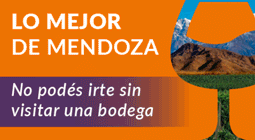Interview Nicolás Catena was a pioneer in understanding the wine market when it began exporting in the 90s Today it is one of the most famous and prestigious winemakers. In this interview shows us his vision of the Argentina wine industry. He had not given notes for Argentine media last week and spoke to Farms.
Is 67 years, three children and likes clarify as five grandchildren. In extremely low profile, is one of the personalities in the wine world that has developed the best premium wines. Today, he owns with his family Bodegas Catena Zapata, Bodegas Caro (in partnership with Lafite-Rothschild 50-50 France), has investments in Bodega EscorihuelaGascón and since 1992 is 50% owner of Bodega La Rural. With its Catena Zapata winery expects to exceed the end of 2007 30 million in exports. – How are capable to build such a successful business – it is very difficult to answer that question. My first response is that it must be due to several reasons. If I had to choose one as the principal to explain how it went to my company, I would say it is due to a kind of obsession with achieving high quality and always improve, even if one does well with a product. It is true that success is attributable to marketing, product quality, a good sales organization, but what I see is that at the end of the day what matters is that you get value for money offer some better than the rest. This is a dynamic process because as it is the business getting this effect is equal competitor. So there you have to take a step further. It is a process that never ends and that has been the philosophy of my warehouses. – What role does human resource in this – a policy in my company has been keeping my staff. When I discovered something important in a person, much is invested in trying to make that person perfect to practice in the winery, and several visits to places where they know more than us. This has been another factor that has made the company to compete successfully: have staff and maintain a group of winemakers who retain that philosophy over time, to always improve quality and strengthen it. Returning to the first question, I think yes, he could have the same people for so many years is a factor that has contributed to the success. – The foreign market: Do you think Argentina is conquering the consumer – in the world are conquering the consumer. We are in a very important process, it is amazing what is happening with the international consumer. In America I dare say that we are fashionable. The Argentine wine is in, and we know why: it is our climate, we have something that I call high altitude vineyards, these wines height have characteristics of temperature, humidity, extreme temperature variations and light intensity are responsible for certain chemical composition of grapes and wine that are unique. – And if I had to choose a terroir in our province, what would it be – That depends on the variety. For Malbec is now be the most popular, look for places with lower temperatures and higher light intensity as the Uco Valley, from the 1,200 meters. – What other choice can have a big development in Mendoza – Our initial findings, while not definitive, is that Syrah can get to work in a climate similar to the Malbec and may be a surprise. But we still have not finished on that range definition. – How does inflation affect the competitiveness of the sector – Inexorably the real exchange rate is declining and will continue that way until the balance of trade is balanced. Until the income of wine exports reach that point they’re going to decline. I do not know much, but we have to expect a sharp decline in the real exchange rate in the coming months and years. So there is significant uncertainty about the income of winemaking. As an economist, what is your contingency plan against this scenario – Our strategy has been to concentrate all our efforts on exporting wines higher price and quality. If the real exchange rate falls, these high-priced wines remain profitable while lower priced wines most likely not. We live this. In 2000/2001 Argentine wineries sold their wines of low loss because the real exchange rate was very low. With the devaluation of 2002 dramatically changed the landscape and returned to profitability, but that is the most vulnerable segment prices and will surely suffer in the near future. My way of dealing with this issue is to focus on the export of wines segment price u $ s FOB 35-40 nine-liter case. – So how do you see that some Argentine wines enter the market with very low prices – For me it is a very high risk that are running. In my case I would not invest in promoting wines in that price segment. – How do you see the promotional campaign of Argentine wine in the domestic market – My impression is that if you have some benefit is negligible. At some point they asked me and my comment was that where they should have spent that money (9 million) is to make known to the world saying that we are a wine producer and second country as it can produce a certain quality. I have just come from Germany, where I had the opportunity to talk to potential customers, and discovered that for them it was a complete surprise that Argentina could produce wines be encouraged to compete with the French. Worse, half of them did not know that Argentina produced wines. So if we have more institutional money where it would serve in international markets, especially to convey that we have a very good terroir. That itself would serve the country. Source: Wine Area





